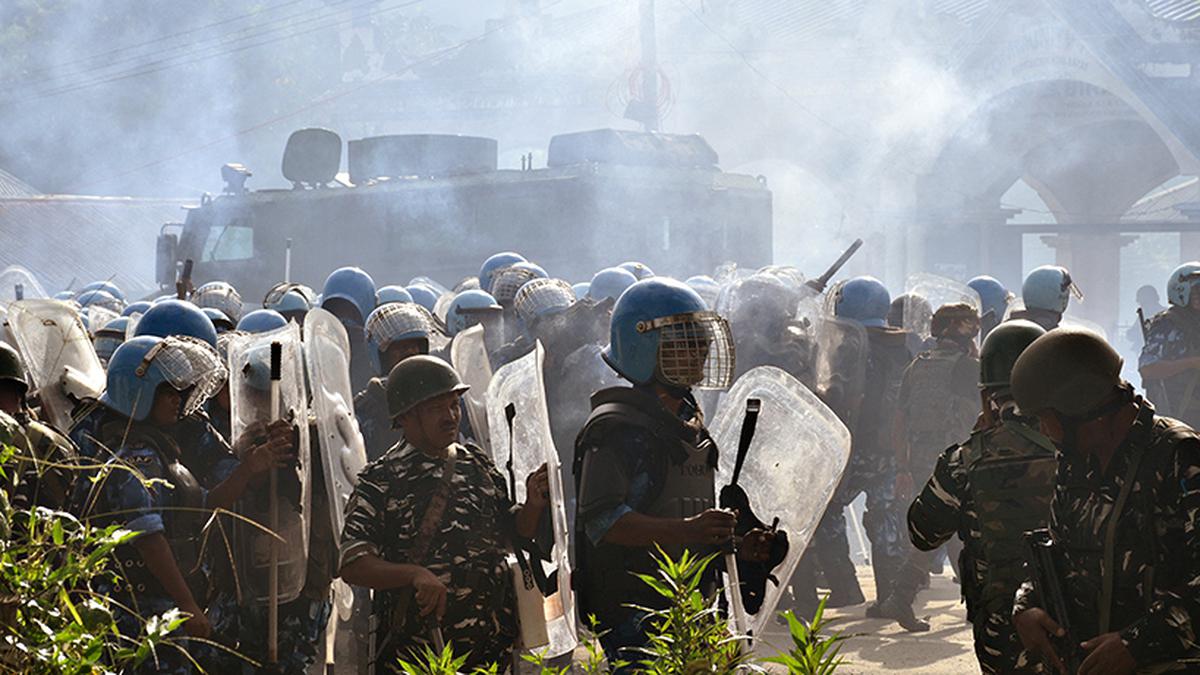
Internal RAF report on Manipur flags women-led mobs attacking unarmed riot police with glass balls, petrol bombs, and sharp iron rods
The Hindu
Government considers phased withdrawal of Rapid Action Force from Manipur due to unsuitable exposure to anti-insurgency theatre. 10 companies of RAF deployed in Manipur, along with 36,000 paramilitary forces. 4,500 CAPF personnel sent on request of State govt. Meitei groups demand removal of Indian Army and Assam Rifles from buffer zones.
The Union government is considering a phased withdrawal of the Rapid Action Force (RAF), a specialised anti-riot Central police force, from violence-hit Manipur. A senior government official told The Hindu that the continuous exposure of the RAF to the anti-insurgency theatre may be not suitable for a force trained in crowd control and law and order duties, including agitation and communal incidents.
Presently, 10 companies of the RAF are deployed in Manipur — eight in the valley districts, and two in the hills.
Other than the police, around 36,000 paramilitary forces or the Central Armed Police Force (CAPF), including Indian Army personnel, are deployed in the State. The ethnic violence between the Meitei and the tribal Kuki-Zo people that erupted in the State on May 3 has claimed at least 175 lives so far.
Also Read: Amit Shah, other BJP national leaders unaware of Manipur women activists role in fighting drug menace, social evils: Ibobi
The Centre has sent an additional 4,500 CAPF personnel on the request of the State government.
Several Meitei groups and legislators from the community have demanded the removal of the Indian Army and Assam Rifles, the oldest paramilitary force in the country, from the “buffer zones”, accusing them of bias towards the Kuki-Zo people.
Since September 15, fresh CAPF deployment has been taking place in certain sections of the buffer zones, where Meitei and Kuki-Zo settlements lie adjacent to each other. These are also the areas that have witnessed the maximum violence, which is continuing.













